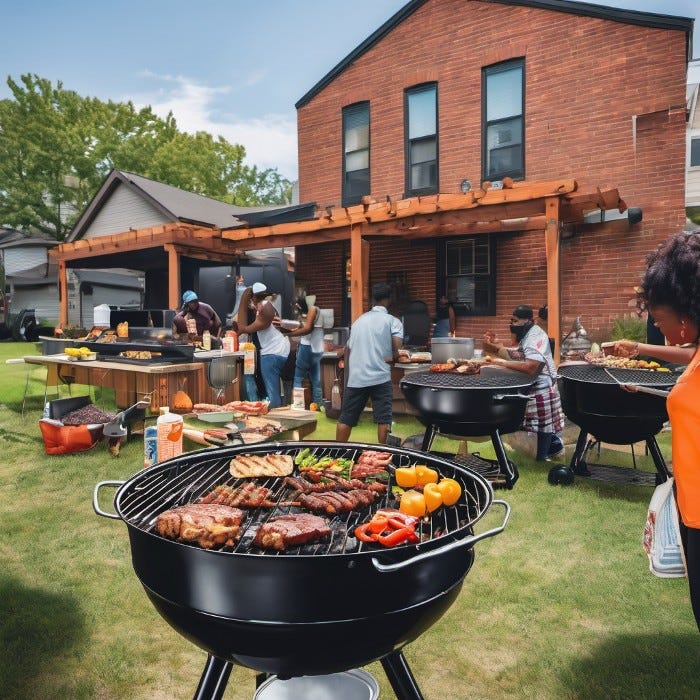Should your 'cookout' host be warned if your guest is a different race?
When white people are invited to 'the cookout,' is everyone else required to be hospitable?

July 21, 2024: This post has been updated since its original June 8, 2024 publication date. The more I think about it and recall the amount of non-black guests I’ve invited over to my parents’ house from K-12 and college — along with those who have come to birthday parties and beyond at my own rentals and current home as an adult — the more I can confirm that I don’t give a damn what race the guest is. A co-worker told me one time, “Being friends with you is like being friends with eight black people at once.” I understood what he meant. I can go from Freddie Brooks to Joan Clayton to Charley Bordelon within a matter of minutes. If we get along, we get along. If we don’t, I’ll show whomever the door. While IDSC does call out racism, my social circle has always been diverse. That will never change.
I cannot remember what happened, but my college roommate was getting on my nerves. When you’re in a 12x12 room, there’s only so much privacy. This happened to be one of those days when none of my friends within the same building were in their rooms. They may have been in class or studying somewhere. So I called up a college friend who lived in one of the other dorms. I needed to get away from my roommate fast.
The friend I called was a Japanese student who was in the United States on a student visa. She and I became fast friends from our first conversation. But on the other end of the phone that day, she paused for an uncomfortably long time. She said she didn't think I'd be comfortable coming to her dorm at the moment. I thought I had a bad phone connection, so I asked her to repeat herself.
ADVERTISEMENT ~ Amazon
As an Amazon affiliate, I earn a percentage from purchases with my referral links. I know some consumers are choosing to boycott Amazon for its DEI removal. However, after thinking about this thoroughly, I choose to continue promoting intriguing products from small businesses, women-owned businesses and (specifically) Black-owned businesses who still feature their items on Amazon. All five of my Substack publications now include a MINIMUM of one product sold by a Black-owned business. (I have visited the seller’s official site, not just the Amazon Black-owned logo, to verify this.) If you still choose to boycott, I 100% respect that decision.
She explained that she was hanging out with a group of her Japanese friends, eating Japanese food and they would only be speaking Japanese. I reminded her that I loved Japanese food. (Not only did she know this, but she came home with me over Thanksgiving break and had been obsessed with collard greens ever since. She and I started trading recipes on the way back to school.) I also reminded her (oddly) that she speaks English, so what difference did it make?
Recommended Read: “Snobs play Spades too! ~ Harvard University Business School students organize the Spades clinic”
She did end up letting me come over to her dorm. I told her I wouldn’t bother anybody, but I needed a break from my own room. The millisecond I entered her room, I could feel the instant discomfort. I’d visited her a zillion times before, but she was usually alone or with one or two of her Japanese friends who spoke fluent English.
These friends did not — or were doing that thing black folks do when we refuse to stop code-switching. But now that I was in the room, they were trying their best to be polite, speak (broken) English (so I didn’t think they were talking about me) and I could feel a weird tension.
ADVERTISEMENT ~ Amazon
As an Amazon affiliate, I earn a percentage for every purchase with my referral link.

I’m not sure exactly how long I stayed, but it was a matter of minutes. I ended up going to the computer lab or walking on campus, something else to busy myself for an hour or two. At the time, I was very offended and questioning whether me and this lady were friends at all. Real friends should be able to bring you around different groups. And if I could bring her around my all-black family and the family of my brother’s wife, then I felt like I should be treated to the same welcoming environment.




